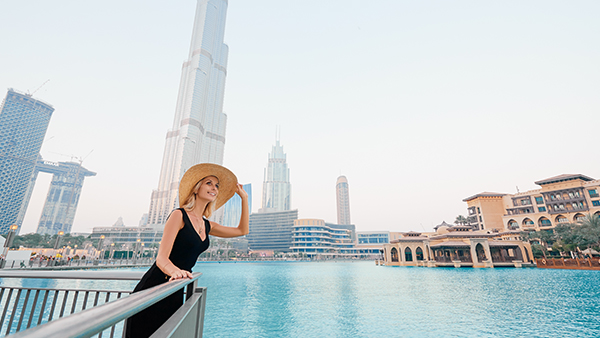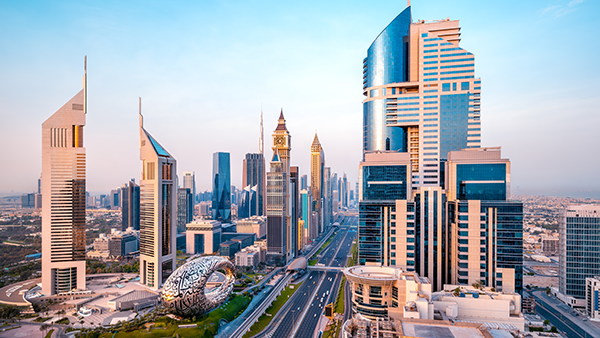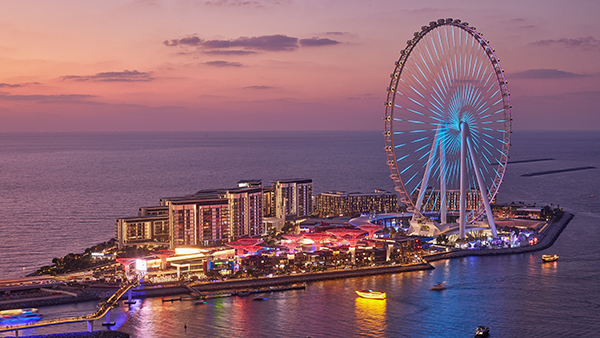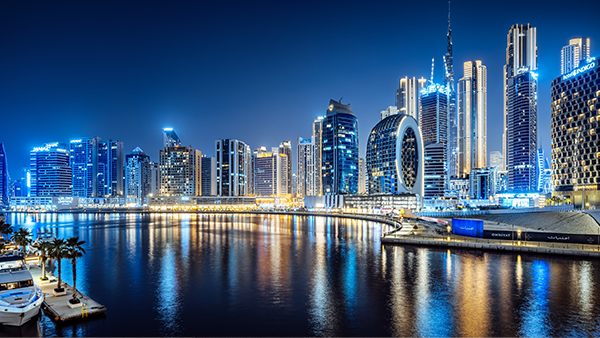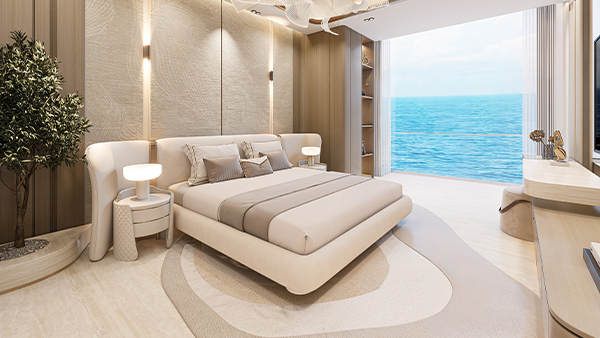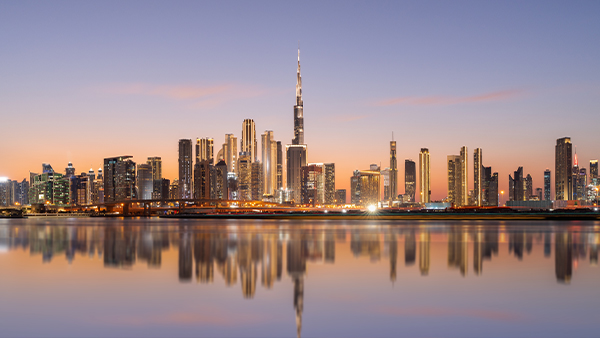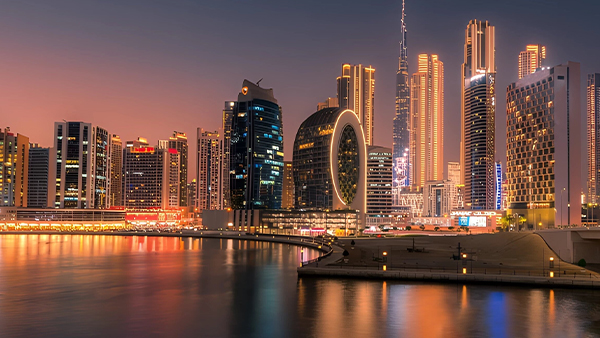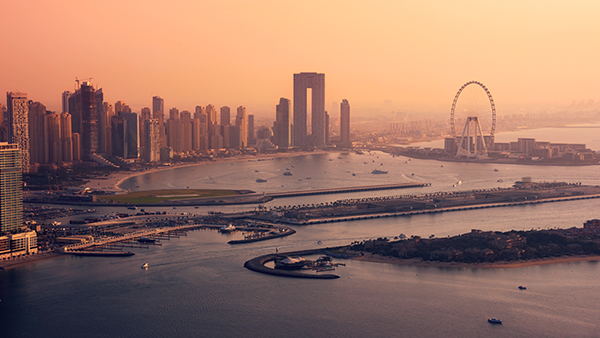How to Retire in Dubai: Visas, Luxury Living, and Smart Property Investments
Dubai has steadily emerged as a top choice for retirement, blending luxurious lifestyles, advanced infrastructure, long-term residency programs, and investment-friendly opportunities.
The city’s world-class urban planning and diverse cultural environment make it an appealing option for retirees who value convenience, safety, and modern living.
It’s also because retirement planning has taken a new shape in recent years, with individuals around the world seeking destinations that offer comfort, stability, and a high standard of living.
With the introduction of the UAE Retirement Visa and the continued expansion of the UAE Golden Visa program, retirement in the region has become more attainable than ever.
These residency pathways, combined with the city’s thriving real estate market, offer a smooth transition to secure and stable long-term living.
For many retirees, securing the right home becomes the foundation of this new chapter. And Dubai’s property market offers the ideal blend of comfort, security, and lifestyle advantages.
Why Expats Love Retiring in Dubai
Dubai blends financial freedom, safety, and resort-style living, making it a top choice for retirees seeking comfort and stability.
1. Tax-Free Income
With no personal income tax, retirees get to enjoy their full pension and investment earnings, ideal for long-term financial security.
2. High-Quality Healthcare
Dubai offers world-class hospitals, specialists, and internationally accredited clinics, ensuring reliable, top-tier medical care.
3. Safe and Secure Living
Consistently ranked among the safest cities globally, Dubai features a peaceful environment tailored to retirees.
4. Vibrant Expat Community
With people from 200+ nationalities, retirees easily find social circles, clubs, and communities where they immediately feel at home.
5. Modern, Easy Living
From efficient transport to advanced infrastructure and endless leisure options, everyday life in Dubai is designed for convenience.
Modern apartments in Dubai prioritise comfort, flexibility, and elevated living experiences, all key elements for those transitioning into retirement.
With thoughtfully designed layouts, abundant natural light, and secure gated communities, these residences present a new standard for retirement-ready living.
Healthcare in Dubai
With a highly advanced healthcare ecosystem known for its efficiency, modern technology, and globally accredited medical facilities, Dubai is one of the best retirement destinations out there.
Retirees have access to private hospitals staffed by multilingual professionals, ensuring seamless care across specialties.
With health insurance compulsory for all residents, medical support is structured and reliable.
Many expats choose international insurance plans for broader benefits: worldwide coverage, freedom to select preferred doctors or hospitals, and added reassurance when traveling beyond the UAE.
The UAE Retirement Visa: A Practical Pathway for Long-Term Residency
Introducing the UAE Retirement Visa has brought a defining option for retirees seeking stability in the region.
This renewable 5-year-long program was created for residents and international retirees aged 55 and above to enjoy an uninterrupted, comfortable life in Dubai, given that they meet the one of the following financial criteria:
- Maintain financial savings of at least AED 1 million.
- Own one or more properties and/or have deposits worth a combined minimum of AED 1 million.
- Must be 55 years of age or older at retirement or have at least 15 years of professional experience (in the UAE or abroad), and meet the financial requirements.
- Earn a monthly income of AED 20,000, or AED 15,000 if applying in Dubai.
The transparency of the program, combined with its streamlined process, has encouraged a growing number of individuals to consider the UAE as a permanent destination after their working years.
UAE Golden Visa Opportunities for Retirees with Property Investments
For retirees who prefer an extended residency period, the UAE Golden Visa offers an exceptional alternative.
This 10-year, renewable residency route is accessible through qualifying real estate investments that meet the property value threshold.
The Golden Visa is especially appealing for retirees who intend to remain in the UAE for the long term, invest in multiple properties, or live close to family members already settled in the region.
Holding a long-term visa also simplifies healthcare access, financial planning, and lifestyle stability. For retirees building portfolios, the Golden Visa’s property investment pathway is a seamless fit.
How to Apply for Dubai’s Retirement Visa
Applications can be submitted either through the GDRFA or the Dubai Land Department (DLD), depending on whether one qualifies through income/savings or property investment.
One can apply online or through an authorized service provider.
However, income or savings applicants must use the GDRFA platform, while property-based applicants have to submit their paperwork and payments at a DLD customer service center.
No matter which category one falls under, they will be asked for:
- A passport copy
- Proof of age (55+ years)
- Bank statements showing income or savings
- Property documents, if using the property route
- Valid health insurance
- A completed application form
For the savings/income pathway, create an account on the GDRFA website, upload the documents, settle the fees, and wait a few weeks for processing.
For the property route, visit a DLD office with the title deed and valuation details. Requirements may vary slightly, so confirming beforehand is wise.
After approval, the residency visa and Emirates ID will be issued, giving you access to essential services like healthcare and banking.
Many retirees also choose to work with relocation experts to simplify the entire process.
Luxury Living Through Apartment Amenities Designed for Comfort
Retirement is about choosing a lifestyle that prioritizes wellbeing, comfort, and meaningful experiences.
This is where Dubai excels. Its residential offerings are far more than just living spaces.
Modern apartments in Dubai prioritize state-of-the-art designs, integrating lifestyle-first amenities in Dubai that complement the needs of retirees.
Danube’s residential communities go far beyond traditional living spaces. Our developments are built on a lifestyle-first philosophy, offering 40+ amenities tailored to the needs of modern retirees who value convenience, wellness, and high-quality living.
Apartment amenities in Danube communities include:
- Temperature-controlled outdoor and indoor swimming pools
- Fully equipped fitness centers
- Walking tracks and landscaped gardens
- Concierge and security services
- Wellness, spa, and relaxation zones
- Access to retail outlets, clinics, and dining
The high-quality amenities create an environment where daily needs blend seamlessly with leisure and recreation.
These features enhance comfort and support a healthy, active lifestyle – a priority for retirees.
The Right Developers for a Retirement-Focused Living
Developers play a significant role in shaping retiree-friendly communities, ensuring properties meet the standards of comfort and long-term value.
Danube Properties offers innovative residential designs paired with flexible payment structures.
And our developments prioritize lifestyle amenities, convenience, and community-centric layouts, which are ideal for retirees seeking a balanced, luxurious living environment.
Danube’s reputation for quality, timely delivery, and thoughtfully designed spaces adds reassurance for investors who view real estate as part of a long-term retirement plan.
Building a Fulfilling Retirement in the UAE
Retiring in the UAE is more than a financial decision.
It is a lifestyle transition that prioritizes comfort, safety, and enriching experiences.
With well-developed residential communities, modern amenities, and accessible residency pathways, Dubai offers an ecosystem tailored for long-term living.
Whether through the UAE Retirement Visa or the long-term security of the Golden Visa, retirees have multiple ways to establish their place in this vibrant environment.
With developers like Danube Properties offering high-quality residential options designed for convenience and luxury, the city remains a compelling destination for those planning a rewarding retirement phase.

